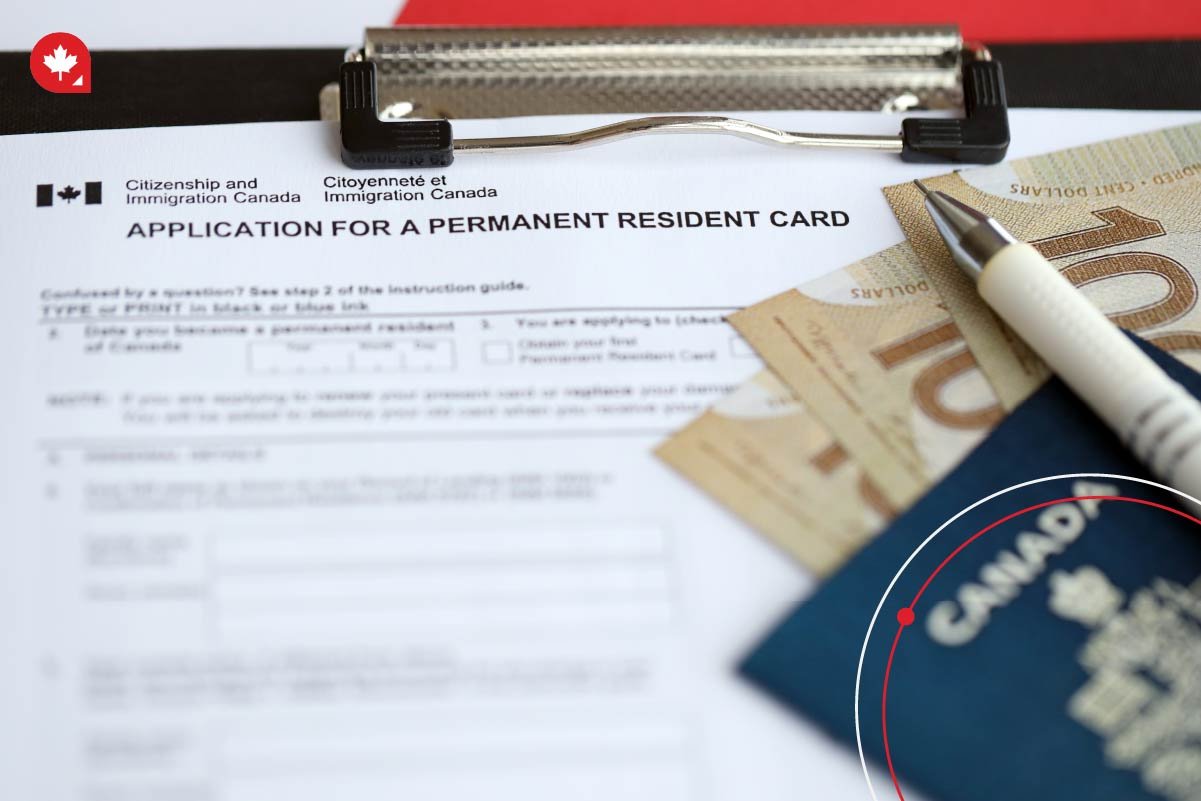Dreaming of calling Canada home? The good news is that you can use your valuable Canadian work experience and turn that dream into reality. Whether you're a seasoned professional or a recent graduate with Canadian work experience, this guide is your one-stop shop for understanding the Canadian Express Class (CEC) navigating the eligibility requirements for work experience, and uncovering other essential details.
We'll equip you with the knowledge and resources to embark on a successful Canadian immigration journey. So, pack your bags (figuratively, for now!), and get ready to find out how to get Canadian permanent residency if you have Canadian work experience.
Gaining Canadian Permanent Residency With Your Work Experience

Canadian work experience is a highly sought-after asset for immigration purposes. It demonstrates your adaptability, familiarity with the Canadian workplace culture, and valuable skills that can contribute to the country's economy. The good news is Canada offers a dedicated program specifically designed to leverage this experience: The Canadian Experience Class.
The CEC Advantage
The CEC streamlines the path to Canadian Permanent Residency for skilled workers who have already honed their skills in Canada. Here are some of the key benefits of the CEC:
- Express Entry System Integration: The CEC operates under the Express Entry immigration system, a points-based system that ranks candidates based on factors like work experience, education, language skills, and age. This system offers transparency and allows you to track your progress within the pool of applicants.
- Faster Processing Times: Compared to other immigration programs, the CEC boasts some of the fastest processing times, often resulting in permanent residency approval within a year.
- No Employer Sponsorship Required: Unlike other programs, the CEC doesn't require a pre-arranged job offer in Canada. This opens doors for a wider range of skilled workers seeking permanent residency.
How is Work Experience Calculated?
To be eligible for the CEC, your Canadian work experience must meet specific criteria. You'll need to demonstrate at least 12 months of continuous, full-time work experience in Canada within the past three years.
Part-time work can be counted proportionally, with 1,560 hours equaling one year of full-time experience. This work experience must have been gained while holding valid temporary resident status in Canada. This ensures you were authorized to work legally in the country.
Your experience should align with the core duties of a skilled occupation listed in the National Occupational Classification (NOC). The lead statement of the relevant NOC description will provide a good overview of the essential actions performed in that occupation. Ideally, your experience demonstrates you've fulfilled most of the core duties listed in the NOC for your chosen field.
Skilled work experience under the CEC refers to occupations classified under NOC TEER categories 0, 1, 2, or 3. These categories generally represent occupations requiring professional or skilled trades training, college education, or several years of experience.
Note that only paid employment with wages or commission counts towards the CEC's work experience requirement. Volunteer work or unpaid internships, while valuable experiences, won't qualify under this program.
How to Obtain Permanent Residency Via the Canadian Experience Class

The CEC offers a streamlined path to Canadian permanent residency for skilled workers who have already gained valuable experience in Canada. Here's a breakdown of the critical steps involved in the application process.
Step 1: Meet the Minimum Requirements
Before diving into the application process, ensure you meet the eligibility criteria for the CEC program. These include:
- Canadian Work Experience: As mentioned above, you must have at least 12 months of continuous, full-time skilled work experience in Canada within the last three years or 1560 hours of part-time work experience.
- Language Proficiency: Demonstrate proficiency in either English or French through an approved language test. The Canadian Language Benchmarks (CLB) system determines the required level of proficiency.
- Educational Background: While not mandatory, possessing a post-secondary degree or diploma can significantly boost your points score under the Express Entry system.
Step 2: Prepare Your Documents
Once you've confirmed your eligibility, gather the necessary documents for your application. This typically includes:
- Proof of Canadian work experience (reference letters, employment records, pay stubs)
- Educational transcripts and diplomas (translated if necessary)
- Language test results (English or French)
- Passport and valid travel documents
- Medical examination results
Step 3: Submit Your Profile
Now that your forms are complete and all your supporting documents are ready, you can submit your Express Entry profile. Your profile will receive a score based on various factors according to the Comprehensive Ranking System (CRS) and will be placed into a pool with other eligible candidates. If you're one of the top candidates, you'll get an Invitation to Apply (ITA) for permanent residency.
You have 60 days to accept or decline your invitation. If you don't get an ITA, your profile will be kept in the draw pool for at least one year or until you receive an ITA.
Following these steps diligently increases your chances of successfully obtaining permanent residency through the CEC program. Remember, this is a general overview, and specific requirements or procedures may change. Consulting the official resources and staying informed throughout the process is crucial for a successful application.
Canadian Immigration Pathways For Semi-skilled Workers
While the CEC is a fantastic option for skilled workers with Canadian experience, it's not the only path to permanent residency in Canada. This section explores several programs designed specifically for semi-skilled workers seeking to build a life and career in Canada.
Upcoming New Pilots For Caregivers
Canada is launching new pilot programs designed to streamline immigration and permanent residency for qualified home care workers. This announcement comes as the existing Home Child Care Provider and Home Support Worker Pilots conclude later this month.
The revamped programs offer significant benefits for caregivers. Firstly, successful applicants will receive permanent residency upon arrival in Canada. You'll gain expanded work flexibility, allowing them to work for organizations providing temporary or part-time care to semi-independent or recovering individuals. This broader scope creates more opportunities for caregivers to find suitable employment with reliable employers.
Specific eligibility criteria for the new pilot programs haven't been fully-outlined yet. However, we can expect requirements to include:
- Reaching a minimum language proficiency level of Canadian Language Benchmarks (CLB) 4.
- Possessing the equivalent of a Canadian high school diploma.
- Demonstrating recent and relevant work experience in the caregiving field.
- Securing a full-time job offer in-home care.
These changes mark a significant step towards addressing Canada's growing demand for skilled home care professionals. Stay tuned for further updates, including comprehensive eligibility details and application procedures, which will be released closer to the program launch.
Agri-Food Pilot
The Agri-Food Pilot streamlines permanent residency for experienced, non-seasonal workers in specific agricultural and food production industries. By attracting skilled individuals who can contribute long-term, the Agri-Food Pilot helps address critical labor shortages within the Canadian agri-food sector, ensuring a more stable and productive future for this essential industry.
Atlantic Immigration Program
The Atlantic Immigration Program (AIP) targets the four Atlantic provinces: New Brunswick, Nova Scotia, Prince Edward Island, and Newfoundland and Labrador. It includes an Atlantic Intermediate-Skilled Program stream specifically designed for semi-skilled workers with a valid job offer from a designated employer in the Atlantic region.
Rural and Northern Immigration Pilot (RNIP)
The Rural and Northern Immigration Pilot (RNIP) offers a unique opportunity for skilled foreign workers seeking permanent residency in smaller Canadian communities. This community-driven program aims to bridge the gap between skilled labor needs and available workers in these regions.
If you're interested, be sure to act quickly. Participating communities have until July 31, 2024, to recommend candidates, and those chosen will have until August 31, 2024, to submit their permanent residence application to Immigration, Refugees and Citizenship Canada (IRCC). Don't miss this chance to live and work in a welcoming Canadian community.
No Canadian Experience?

If you haven't had the chance to work in Canada yet, don't despair. Here are some strategies to get your foot in the door:
- Other Express Entry Options: You may qualify for two additional immigration programs managed by the Express Entry system, namely the Federal Skilled Worker Program and the Federal Trades Worker Program, which don't require Canadian-specific work experience to apply for permanent residency.
- Canadian Work Permits: Explore obtaining a Canadian work permit that allows you to gain relevant Canadian work experience.
- Study in Canada: Consider pursuing higher education in Canada. International students often qualify for a Post-Graduation Work Permit, opening doors for post-study work experience and potentially paving the way for permanent residency through the CEC.
Top In-demand Jobs in Canada
If you want to gain Canadian work experience, look at the top in-demand jobs in Canada.
| Occupation | NOC Code | Estimated Salary Per Year (CAD) |
|---|---|---|
| Registered Nurse | NOC 31301 | 73,185 |
| Sales Associate | NOC 64100 | 32,140 |
| Electrician | NOC 72200 | 69,145 |
| Caregiver | NOC 44101 | 29,250 |
| Chef or Cook | NOC 63200 | 42,919 |
| General Labourer | NOC 85101 | 31,717 |
| Receptionist | NOC 14101 | 39,000 |
| Long-Haul Truck Driver | NOC 73300 | 50,695 |
| Welder | NOC 72106 | 45,540 |
| Pharmacist | NOC 31120 | 96,914 |
FAQs
Who Doesn't Qualify for CEC?
You won't be eligible for the Canadian Experience Class if you are a:
- Refugee claimant in Canada
- Someone who works without authorization
- Worker who gained Canadian work experience without temporary resident status while in Canada
How Can I Improve my Chances of Getting an ITA for Canadian Permanent Residency?
There are many ways to boost your CRS score and increase your chances of receiving an ITA for permanent residency. This includes:
- Obtaining a Full-Time Job Offer
- Verifying your Education Credentials with an Educational Credential Assessment (ECA)
- Securing a Provincial Nomination




